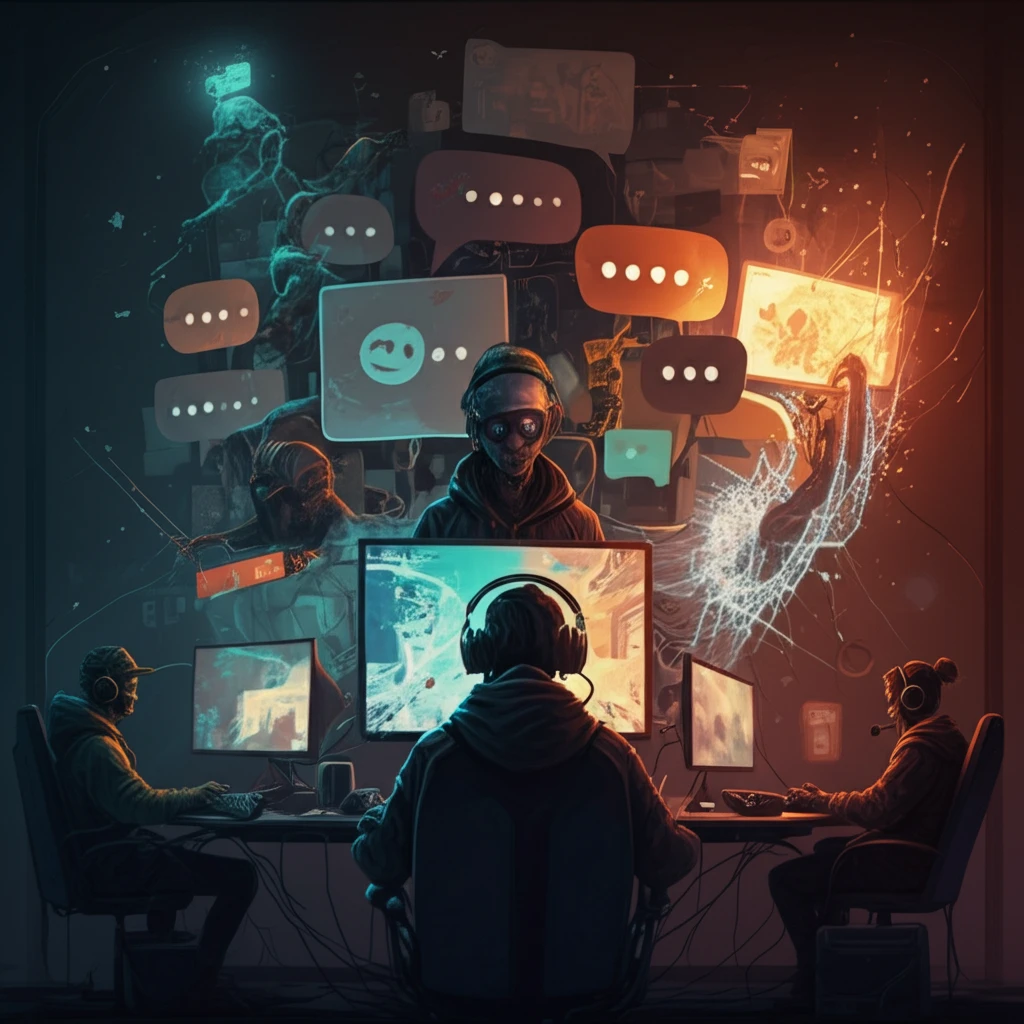
Is Online Gaming Toxicity Ruining Your Fun? Unveiling the Impact and How to Combat It
"A deep dive into how toxic behavior affects player engagement and what you can do to create a healthier gaming environment."
Online gaming has evolved into a global phenomenon, connecting millions of players in immersive virtual worlds. However, this digital playground is not without its shadows. Toxicity, in the form of abusive language, harassment, and disruptive behavior, has become an increasingly prevalent issue. Understanding the impact of toxicity on player engagement and its propagation is crucial for fostering healthier and more enjoyable gaming environments.
Toxicity doesn't just ruin individual experiences; it erodes the overall sense of community and can drive players away from games they once loved. Game publishers and developers are beginning to recognize the importance of addressing this issue, not only to protect players from harm but also to maintain the health and longevity of their games. Addressing toxicity isn't merely a matter of ethical responsibility; it's a strategic imperative.
Recent research delves into the causal effects of exposure to toxic language on player engagement and the spread of similar behavior. By analyzing data from popular online video games, these studies offer valuable insights into how toxicity impacts players and what measures can be taken to mitigate its harmful effects.
The Ripple Effect: How Toxicity Spreads and Impacts Engagement

Toxicity in online games isn't just a collection of isolated incidents; it's a contagious phenomenon that can spread rapidly through communities. Exposure to negative behavior can significantly influence a player's engagement and their likelihood of exhibiting similar behavior. This creates a cycle of negativity that can be difficult to break. Understanding the mechanisms by which toxicity propagates is essential for developing effective intervention strategies.
- Source of Toxicity: Whether the toxic language originates from opponents or teammates significantly alters its impact.
- Team Dynamics: The relationship between players, such as whether they are in the same party or different parties, affects the likelihood of toxic behavior.
- Match Outcome: The outcome of the match, whether a win or loss, can exacerbate or mitigate toxic behavior.
Strategies for Combating Toxicity and Fostering Positive Gaming Environments
Addressing toxicity in online games requires a multi-faceted approach involving game developers, publishers, and the player community. By understanding the factors that contribute to toxic behavior and implementing effective intervention strategies, we can create more positive and inclusive gaming environments for everyone. Here are several strategies to consider:
